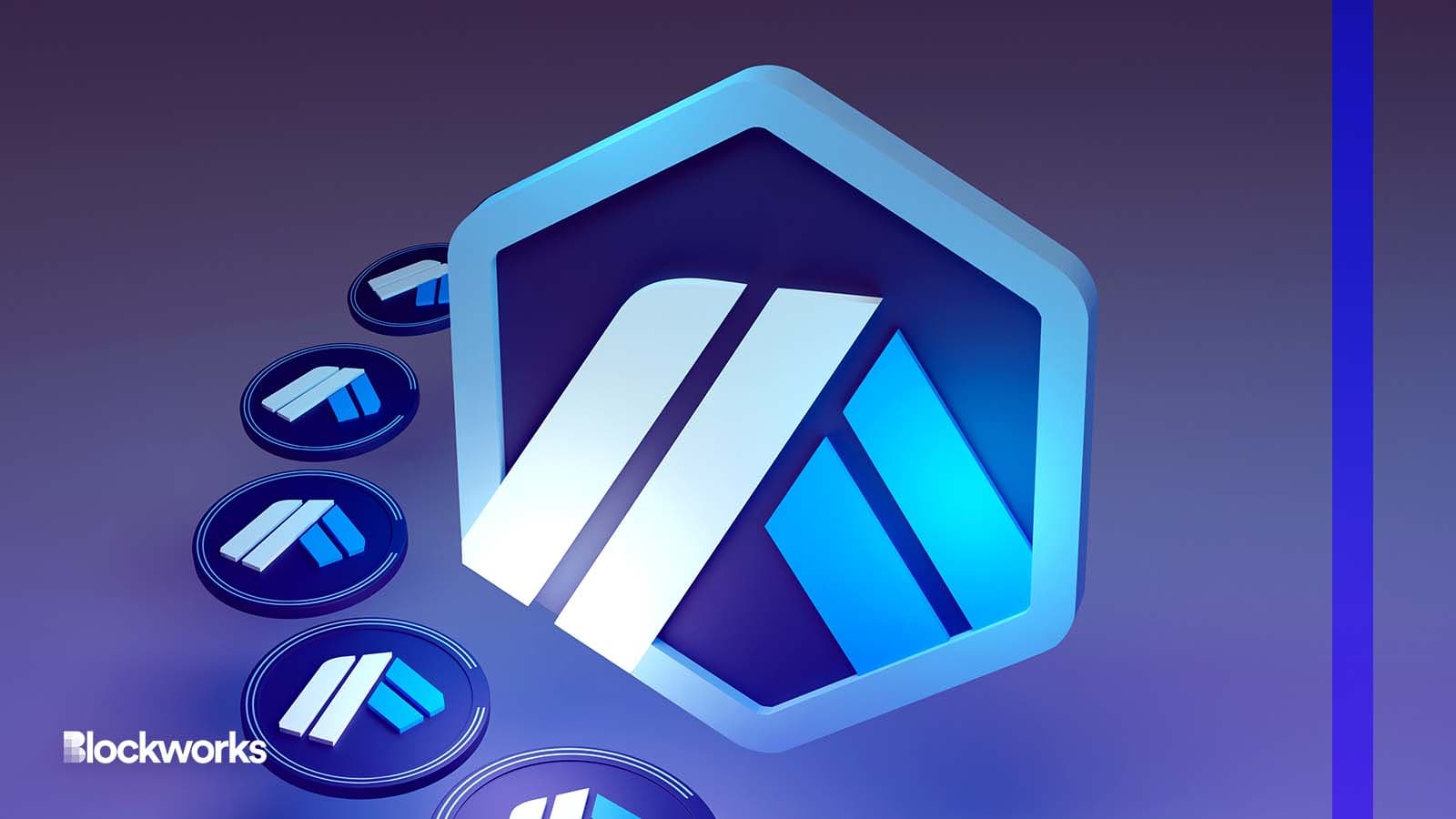Arbitrum Airdrop: What You Need To Know About This Ethereum Layer-2
Arbitrum will no longer be entirely governed by Offchain Labs following tomorrow’s airdrop

CryptoFX/Shutterstock modified by Blockworks
The Arbitrum ARB governance token airdrop is one day away and will mark the beginning of its transition into decentralization.
Prior to its token launch, the Ethereum layer-2 network had been governed by New York startup Offchain Labs — the developer behind the protocol.
Arbitrum is an optimistic rollup scaling solution on Ethereum. Scaling solutions are designed to ease congestion and prices of gas fees on the Ethereum network.
Rather than executing a transaction on Ethereum, the transaction is instead sent to Arbitrum, whose throughput capacity is seven to 10 times greater than that of Ethereum.
Following Arbitrum’s Nitro upgrade, there has been an uptick in transactions on-chain, recently overtaking Ethereum in daily transactions.
There’s currently $2 billion locked inside Arbitrum-powered protocols compared to Optimism’s $1 billion, per DeFiLlama. Decentralized derivatives platform GMX and exchange Uniswap command the most value. Ethereum native dapps Aave and Curve have also launched on the network, among others.

Rising usage only amplifies the need for decentralization. According to Blockworks Research, ARB will allow for decentralized governance over the Arbitrum protocol, similar to Optimism’s OP token.
ARB holders will vote on all aspects of the protocol including upgrades, inflation adjustments, as well as capital allocations (including grants).
Almost 12% of the total airdrop supply will be distributed to Arbitrum users and a tad over 1% of will be given to DAOs building on top of the network.
- 43% to the Arbitrum DAO treasury overseen by the protocol’s community governance.
- 27% to the Offchain Labs team and future advisers.
- 17.5% to Offchain Labs investors.
A security council will also be established to make swift decisions when a normal governance process may be too slow.
“The security council, while removing some element of decentralization, is meant as a backstop in case of emergencies,” Blockworks Research said. “Since Arbitrum, and rollups in general, are still in their infancy it’s not enough to say they are truly 100% secure especially as new upgrades get added.”
Token holders will elect two groups of six security council members (totaling 12) every six months, each who will have private keys to a multsig that will control the protocol’s primary smart contract.
An eligible candidate for the council must be a member of the DAO and receive support from 0.2% of votable tokens. Chosen members will receive a $5,000 stipend in the form of ARB tokens.

How much trust is baked into Arbitrum?
Main trust concerns around Arbitrum are in its state validation and upgradability. Arbitrum did not respond to Blockworks’ request for comment.
State validation refers to the proofs used or how the network decides which transactions (network state) are valid.
“In Arbitrum’s case, they have fraud proofs enabled, but only by whitelisted validators and used interactive proofs which take many transactions to solve,” Blockworks Research said.
Although enabling fraud proofs is much better than having none at all — as in the case of Arbitrum’s competitor Optimism — it would be more ideal to have permissionless proofs.
Another risk is the upgradability of Arbiturm’s smart contract, as seen with Jump Crypto’s counter-exploit of the Wormhole hacker last month. A smart contract is considered to be most secure if it can not be upgraded, which is not the case for both Arbitrum and Optimism.
Get the news in your inbox. Explore Blockworks newsletters:
- The Breakdown: Decoding crypto and the markets. Daily.
- 0xResearch: Alpha in your inbox. Think like an analyst.






